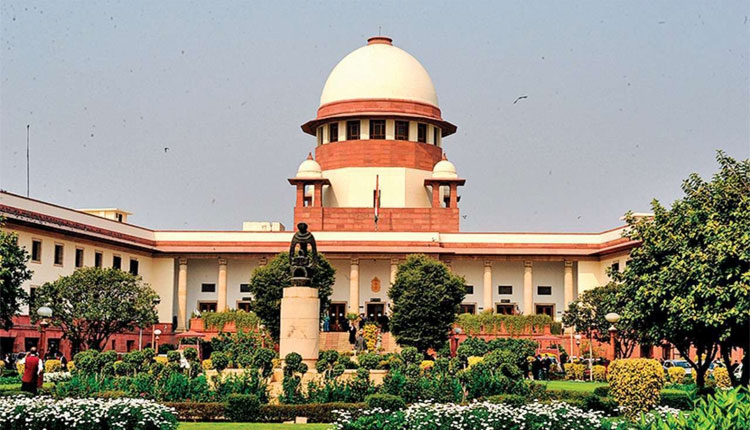NewDelhi: In a significant move, the Supreme Court of India summoned the chief secretaries of 18 states and Union Territories on Monday over alleged non-compliance with the recommendations of the Second National Judicial Pay Commission (SNJPC) regarding the payment of pension arrears and retirement benefits to judicial officers. This follows a notice issued by Chief Justice DY Chandrachud during the last hearing, requiring these top officials to appear in court.
The Supreme Court has taken note of compliance affidavits submitted by states and Union Territories including Madhya Pradesh, Tamil Nadu, West Bengal, Bihar, Meghalaya, Himachal Pradesh, Odisha, Kerala, and Delhi. Acknowledging their compliance, the court has ordered the closure of proceedings against these regions.
During the hearing, Chief Justice Chandrachud inquired about the states that had adhered to the SNJPC recommendations. Senior advocate and amicus curiae K. Parameshwara informed the court that Madhya Pradesh, Tamil Nadu, Meghalaya, and Himachal Pradesh had provided the necessary funds. The court has mandated that all states must fully comply with the recommendations within four weeks.
Chief Justice Chandrachud further remarked that the four states—Madhya Pradesh, Tamil Nadu, Meghalaya, and Himachal Pradesh—require additional clarification. Regarding Tamil Nadu, the Chief Justice noted that funds had been allocated, and judicial officers are now permitted to submit their bills within four weeks, with the distribution process also to be completed within this timeframe.
The three-judge bench, comprising Justices J B Pardiwala and Manoj Misra, led by Chief Justice Chandrachud, stated that chief secretaries and finance secretaries from states that have complied with the court’s directives on the payment of arrears, salaries, pensions, and allowances to judicial officers are no longer required to appear before the court. The bench expressed its reluctance in summoning top officials but highlighted that the absence of state counsels during hearings had necessitated such measures.
The court had previously directed officials from Tamil Nadu, Madhya Pradesh, West Bengal, Himachal Pradesh, Andhra Pradesh, Chhattisgarh, Delhi, Assam, Nagaland, Meghalaya, Jammu and Kashmir, Ladakh, Jharkhand, Kerala, Haryana, Bihar, Goa, and Odisha to appear in person. This directive was issued after senior advocate Parameshwara informed the bench that despite multiple orders and extensions, 18 states and Union Territories had not fully complied with the SNJPC’s recommendations.
The All India Judges’ Association (AIJA) has been actively demanding the implementation of welfare measures and other benefits for former judges and judicial officers, adding further pressure on the states to meet their obligations. The Supreme Court’s firm stance on this issue underscores the importance of upholding the rights and entitlements of the judiciary across the country.



Comments are closed.